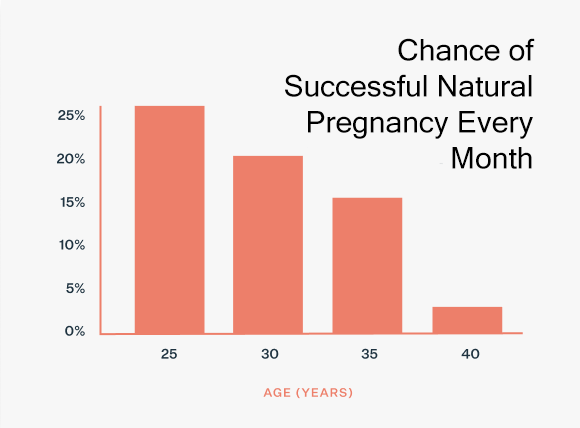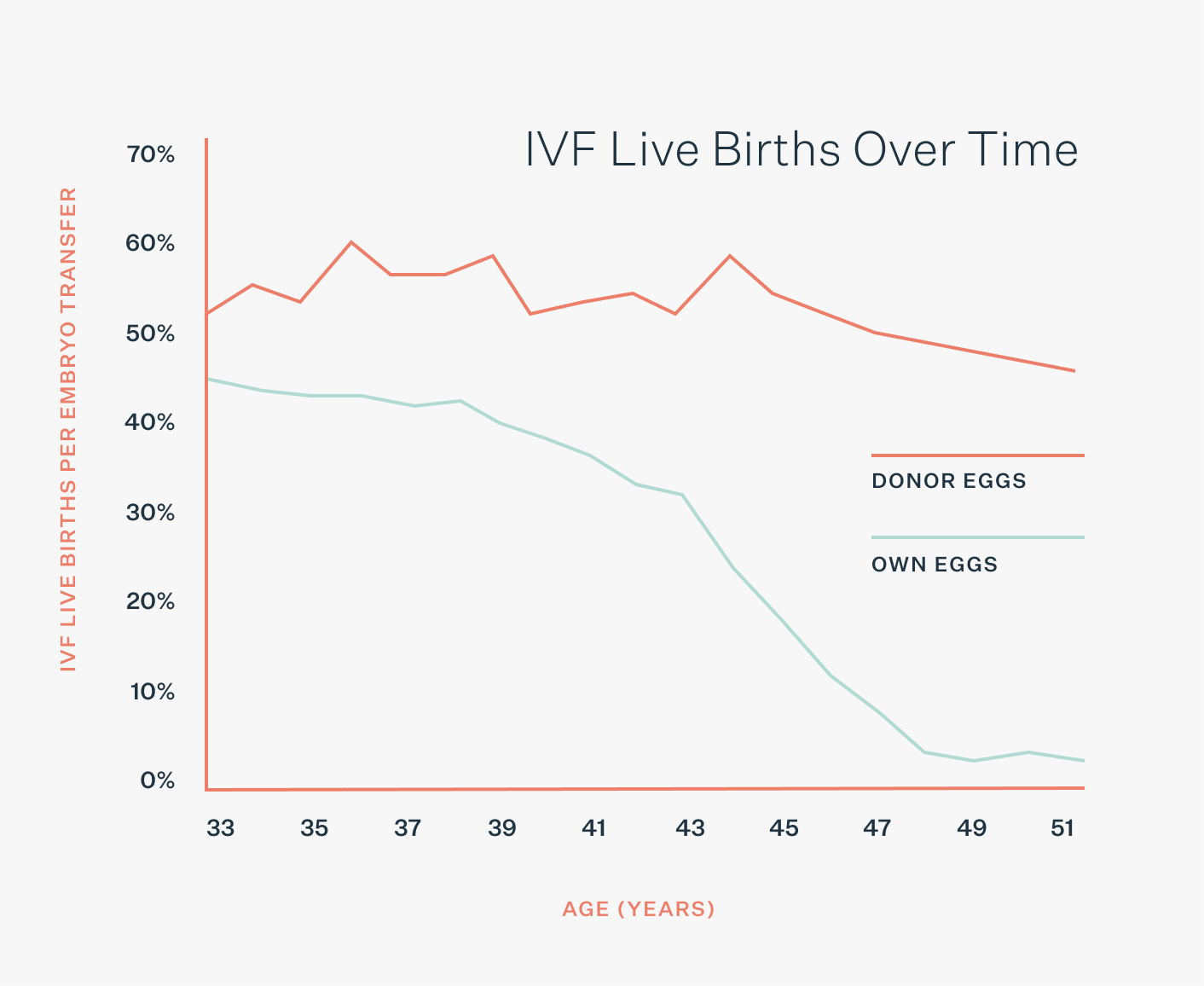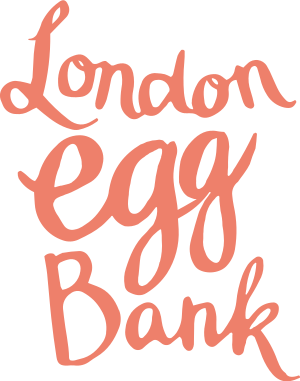Your age is probably the most significant factor affecting whether you will get pregnant naturally or not. Women’s fertility decreases with age, as both the number and the quality of eggs reduces.

You will be most fertile in your 20s, with a steeper fall happening after age 35. In your 20s you will have around a 25 % of getting pregnant each month, and so you have a very good chance of getting pregnant if you’re trying within a year. By age 40, the chance of getting pregnant naturally each month drops to just 5%.
What is normal?
You are born with a complete store of eggs, with babies having around 1-2 million potential eggs held in ovarian follicles. But by the time you begin to ovulate you will have a store of between 300,000 and 500,000, as unused potential eggs are naturally reabsorbed by the body over time.
Each month after puberty, a group of follicles (each with a small, immature egg inside) have the potential to respond to hormones, to grow and to ovulate. Although this group are all getting ready for ovulation, usually you’ll only have one egg ovulate each month. Eggs that don’t make it to ovulation dissolve and are reabsorbed.
You’ll probably ovulate between 400 and 500 times in your life, but each time you’ll lose over 1,000 follicles, or potential eggs. This loss accelerates as you get older, and so your original store gets depleted over time.
As the number of eggs declines, the quality also declines. This can mean that you are less likely to get pregnant, and if you do, you may be more likely to miscarry.
What’s important for success?
Ovarian reserve
The number of eggs you have, or your ovarian reserve, determines your fertility potential – what your total remaining egg count might be, and also how many eggs might be retrieved during one cycle.
To establish your ovarian reserve, we use two different tests – an AMH (anti-Müllerian hormone) test and an antral follicle count (AFC).
Read more about ovarian reserve
Egg quality
The quantity of eggs you have is important, but egg quality is even more important. When we talk about the quality of an egg, we are looking at whether the egg is genetically normal or abnormal.
As your ovaries age, they will have an increasing number of ‘abnormal’ eggs, and as the number increases there is less chance of you conceiving with a ‘normal’ egg each month, along with an increased risk of miscarriage and genetic disorders.
The Age of the Eggs matter
Studies show that older women who undergo IVF with their own eggs are less successful than women using donor eggs from a younger woman.

The age of the egg is the most important factor we can identify. Although there are some risks associated with carrying a pregnancy at an older age (for example a slightly higher risk of gestational diabetes and preeclampsia), a young and healthy egg has the most chance of achieving a healthy pregnancy.
If you discover that your egg reserve is very low, and you’re advised that fertility treatments are unlikely to be successful with your own eggs, you should be reassured that treatment will still be possible with a better chance of success using donor eggs.
